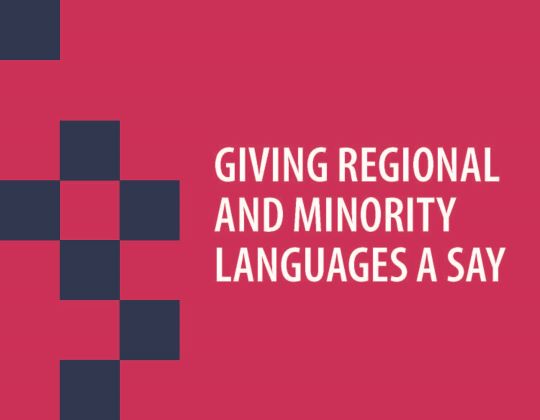The European Charter for Regional or Minority Languages entered into force in Sweden in 2000. In its eighth evaluation report on Sweden, the Council of Europe’s Committee of Experts notes that the Swedish authorities have increased the financial support designated for the protection of the regional and minority languages protected by the Charter, (Sami, Finnish, Meänkieli, Romani Chib and Yiddish). However, the Committee also defines clearly the deficiencies in the implementation of the European Charter for Regional or Minority Languages.
The Committee of Experts calls on Sweden, as a matter of priority, to include language as a ground for discrimination in the legislation, ensure that “mother tongue” education offers adequate language tuition and increase the amount of bilingual education available in Finnish and Sami. Bilingual education in Meänkieli should also be ensured. In preschool education, all relevant municipalities should improve the offer in minority languages. In addition, the authorities are urged to increase the system of teacher training and to adapt it to the situation of each of the minority languages.
The Committee welcomes the government’s initiative “New start for a stronger minority policy” but underlines that it has not yet reached a level that would have a full impact on the practical implementation of the Charter, especially with regards to the national minority language education system. The offer of one lesson per week is considered insufficient for the needs and demands of the speakers, as well as for the development of a mature literacy and the survival of the minority languages. The number of municipalities belonging to the administrative areas of Sami, Finnish and Meänkieli has not increased, and the level of awareness of the national minorities has not increased significantly, either.
The experts point out, that the recommendation on ensuring legal remedy in cases when the use of national minority languages is denied, has not been fulfilled, because no action has been taken to include language as a ground for discrimination in the Discrimination Act.
Further, Sweden would benefit from developing a structure for the collection of reliable data on the number and geographic distribution of the speakers to help assessing the needs of the minority languages speakers across the country within education, public administration or judiciary.
According to the provisions of the Charter, the Swedish authorities are required to submit the mid-term report on their implementation of the recommendations for immediate action of the eighth evaluation report by 1 December 2023, and their ninth periodical report by 1 June 2026.
The eighth evaluation report of the Committee of Experts of the European Charter for Regional or Minority Languages is based on the information provided by governmental and non-governmental sources, including that obtained during its visit to Sweden on 17-20 May 2022.
The evaluation report has been published together with comments from the authorities.





